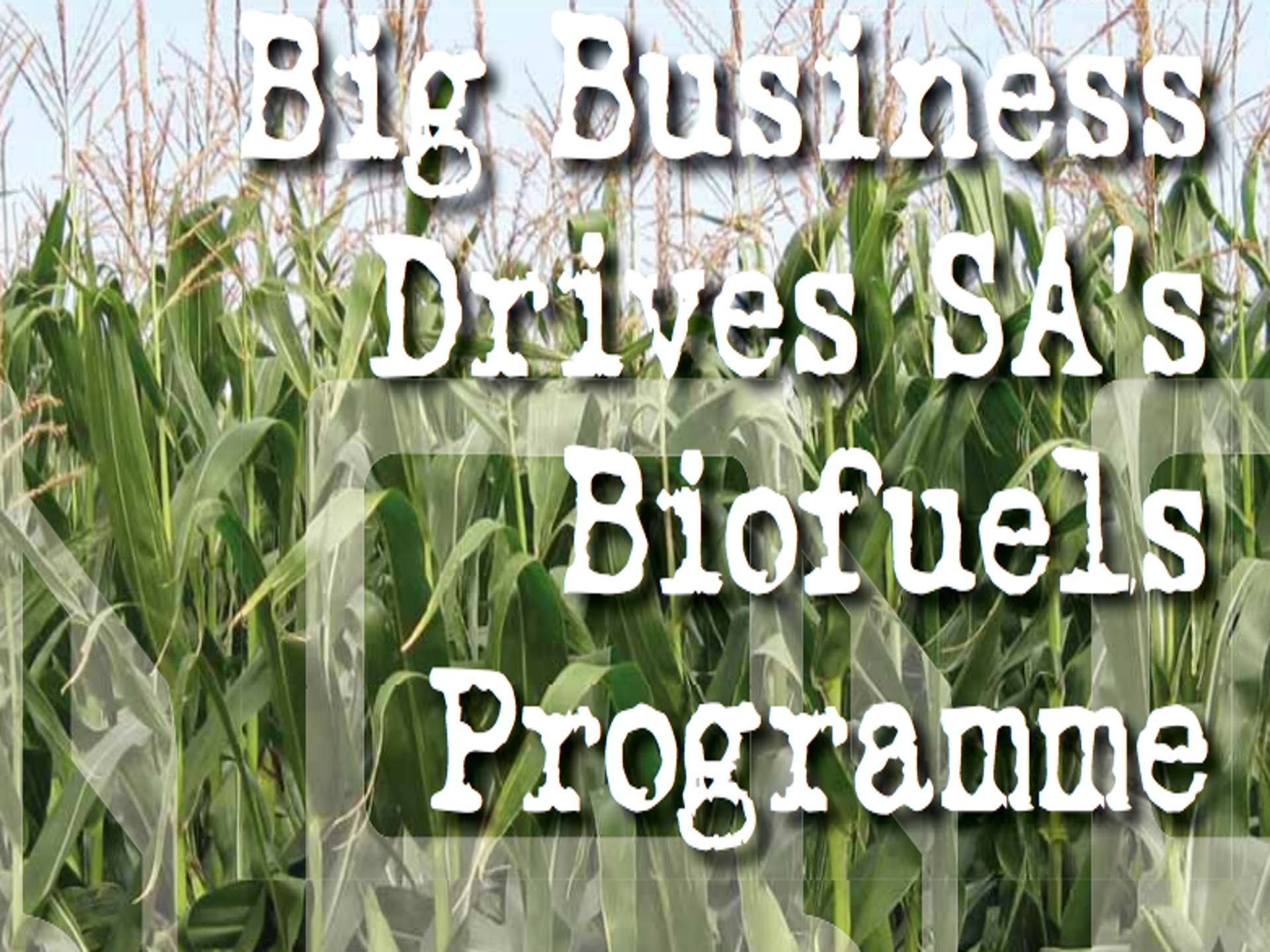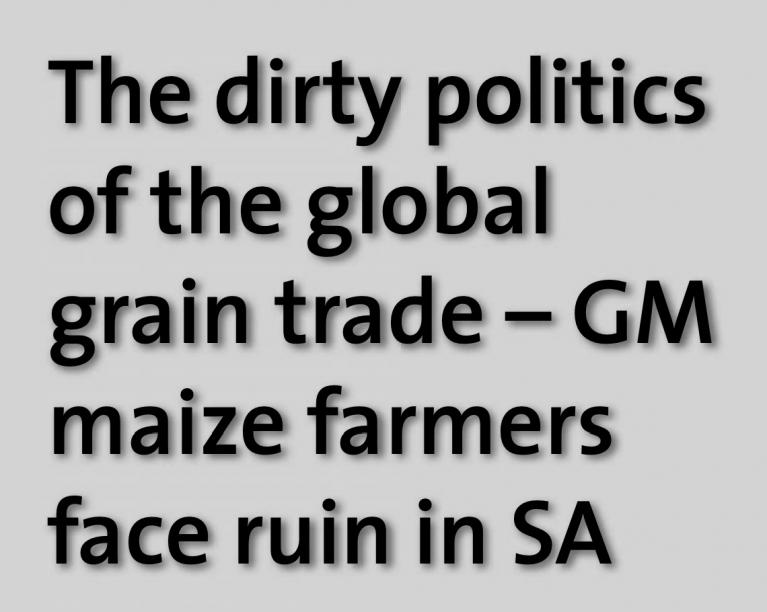Latest Resources

23 October 2013
Africa bullied to grow defective BT Maize: the failure of Monsanto’s M810 maize in South Af...
The African Centre for Biosafety (ACB) has released a new report ‘Africa bullied to grow defective Bt Maize: the failure of Monsanto’s MON810 maize in South Africa,’ showing how Monsanto’s GM maize which utterly failed in SA, is now being foisted on the rest of the continent, through ‘sleight of hand.’ Read here.

23 November 2012
Harmonisation of Africa’s seeds laws: a recipe for disaster
The core of the paper is focused on the pressures being exerted on African governments to adopt the 1991 Act of the International Union for the Protection of Plant Varieties (UPOV), particularly through regional harmonisation of plant variety protection (PVP) policies and laws. We also discuss the adverse impacts PVP laws will have on the […]

15 May 2012
Big Business Drives SA’s Biofuels Programme
In late February 2012 leading figures from the fossil fuel industry met in Pretoria to forge ahead with the government’s highly controversial plans for an SA biofuels industry. The catalyst for this meeting was the publication by the government last September of draft regulations for the mandatory blending of biofuels in the nation’s fuel supply. […]

8 September 2010
The dirty politics of the global grain trade – GM maize farmers face ruin in SA
Recently, the South African press reported on the possible bankruptcy faced by maize farmers. The African Centre for Biosafety (ACB) has today released a new report titled “The dirty politics of the global grain trade – GM maize farmers face ruin in SA” which provides an analysis of why South Africa’s record 13 million ton […]

13 August 2010
GM Sorghum: Africa’s Golden Rice
In this paper, we critically analyse the African Biofortified Sorghum (ABS) project, a GM ‘poster project’ in Africa. We dig beneath the veneer of the project being an “African led solution” to poverty and malnutrition on the continent. We also focus attention on the myriad of sorghum research initiatives currently underway in Africa, using both […]

7 February 2010
Bilateral biosafety bullies: How corporations use bilateral trade channels to weaken biotech regu...
Across the world, the use of bilateral trade instruments to prise open markets for genetically modified (GM) crops is escalating. To expand business overseas, the biotech industry needs stronger intellectual property rules and weaker biosafety standards. Bilateral trade deals are an effective way to do this. This report looks specifically at how the world’s grain […]

17 November 2009
Ongoing Concerns about Harmonisation of Biosafety Regulations in Africa
The paper is a response to concerns raised by the African Union’s Biosafety Unit about assertions made in an earlier briefing in June 2009 regarding the African Union’s biosafety harmonisation processes. In this briefing the Ms Swanby on behalf of the ACB salutes the initiatives taken by the AU in the biosafety discourse on the […]

10 August 2009
Pirating African heritage: the pillaging continues
The cases of suspected biopiracy are summarised and discussed in a few paragraphs. Patent numbers and/or application numbers are provided for each, as well as contact information for the entity or entities that have lodged the patent claims. Using the provided data, the full patent (application) text can be accessed online at patent websites, such […]

26 March 2009
Genes from Africa: the Colonisation of Human DNA
Indigenous people’s groups and NGOs have waged a long and bitter struggle against the Human Genome Diversity Project and similar efforts to collect the DNA of indigenous and other peoples without appropriate consent and sufficient safeguards against abuse. The Human Genome Diversity Project (HGDP), the brainchild of Italian geneticist Luca Cavalli-Sforza, comprised of a group […]

13 February 2008
South Africa’s Biofuels Strategy: greenwashing agribusiness interests
The impetus for the establishment of a biofuels industry in South Africa also came from industry lobbyists under the banner of the Southern African Biofuels Association (SABA). Consequently, the South African government published a feasibility report and a draft Biofuels Industrial Strategy in 2006, which proposed the establishment of a mandatory bioethanol target of 8% […]
